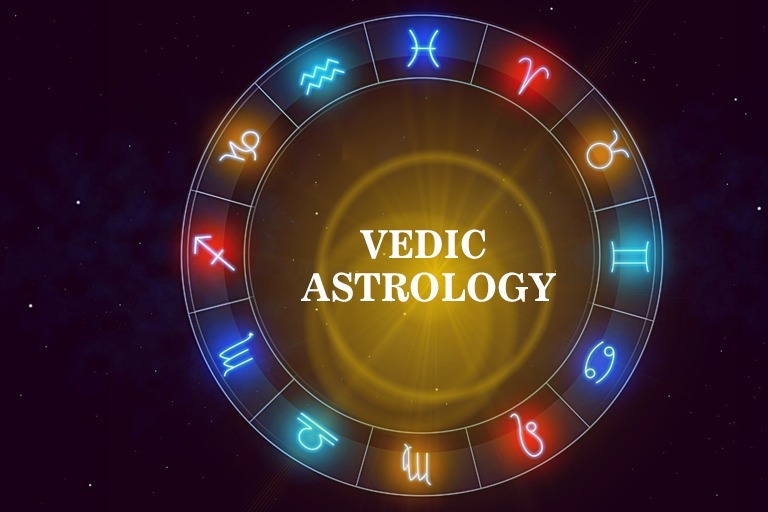
In Vedic astrology, the Moon sign plays a central role in understanding the emotional and psychological makeup of an individual. While the Sun sign is often associated with personality traits and outward behavior, the Moon sign governs the inner self, For Vedic Astrology how a person processes emotions, handles stress, and seeks emotional security. The Moon’s placement in the zodiac at the time of one’s birth can reveal deep insights into their emotional responses, relationship dynamics, and overall mental health. This article explores how the Moon sign in Vedic astrology influences your emotions and how it shapes your emotional life.
The Moon sign in Vedic astrology is considered the most significant factor in understanding one’s emotional nature, as it reflects the unconscious mind and emotional responses to life’s experiences. Unlike the Sun, which represents the soul and core essence, the Moon influences how a person feels on a day-to-day basis. It governs the mind’s mental processes, memory, intuition, and the way one reacts to external events. People with a strong, well-placed Moon in their birth chart often have a stable, balanced emotional nature, while those with a weak or afflicted Moon may experience emotional turmoil, mood swings, and a heightened sensitivity to external influences. Therefore, the Moon sign is a key indicator of emotional health and stability in Vedic astrology.
Each of the twelve Moon signs carries its own emotional characteristics, influenced by the qualities of the zodiac sign it resides in. For instance, a person with a Cancer Moon may be highly nurturing, empathetic, and intuitive, often seeking emotional fulfillment through family and close relationships. On the other hand, someone with a Scorpio Moon may experience intense emotional highs and lows, often keeping their feelings hidden and needing deep emotional connections to feel secure. A Leo Moon may crave admiration and validation, finding emotional satisfaction in creativity and recognition. By understanding the specific traits of their Moon sign, individuals can gain insight into their emotional needs and behaviors, helping them navigate relationships and personal challenges more effectively.
In Vedic astrology, the Nakshatras (lunar constellations) also play a significant role in shaping the Moon’s influence on emotions. The Moon moves through a specific Nakshatra every 2-3 days, and each Nakshatra has its own unique qualities, ruling deities, and energies. These Nakshatras provide deeper nuances to the emotional profile of a person, beyond the general traits of the Moon sign. For example, a person born under the Rohini Nakshatra (associated with the Moon and the Taurus sign) might have a strong desire for beauty, comfort, and emotional stability, whereas someone born under the Mula Nakshatra (associated with Sagittarius) may be more adventurous, but also prone to emotional upheavals due to their restless nature. Understanding the Nakshatra of the Moon can offer more precise insights into the emotional temperament and reactions of an individual.
The emotional stability of a person is not solely determined by the Moon’s sign but is also influenced by its aspects and placement in the chart. The Moon’s relationship with other planets can greatly affect emotional well-being. For instance, if the Moon is in a harmonious aspect (such as a trine or sextile) with benefic planets like Venus or Jupiter, the individual is likely to experience emotional contentment, ease in expressing their feelings, and a positive outlook on life. However, if the Moon is in a challenging aspect (such as a square or opposition) with malefic planets like Mars or Saturn, the person may struggle with emotional blockages, a sense of emotional coldness, or difficulty in forming trusting relationships. The condition of the Moon in the birth chart can provide clues about how a person might react to emotional challenges and their ability to cope with stress.
Additionally, the Moon’s position in the houses of the Vedic birth chart offers further insight into how emotions are expressed in various aspects of life. The 4th house, which is associated with the home, mother, and emotional foundation, is particularly significant for understanding how a person feels emotionally secure. A well-placed Moon in the 4th house indicates an individual who is emotionally grounded, nurturing, and enjoys peace and harmony in their home environment. However, a Moon in the 12th house (associated with isolation, subconscious patterns, and hidden emotions) may indicate someone who experiences emotional difficulties in expressing their feelings, leading to a tendency for introspection or emotional suppression. Understanding the house placement of the Moon can guide individuals in recognizing where they might need emotional support or healing.
In Vedic astrology, the strength of the Moon can be assessed through specific remedies and practices to strengthen its influence. For instance, if the Moon is weak or afflicted in the birth chart, an astrologer might recommend wearing a pearl gemstone, chanting mantras dedicated to the Moon (such as the Chandra mantra), or performing pujas (rituals) to appease the Moon. These remedies are believed to bring emotional balance, mental clarity, and peace to those who are struggling with emotional instability or turmoil. Additionally, practices like meditation, mindfulness, and connecting with nature can help individuals align with the Moon’s energies, enhancing emotional awareness and promoting mental well-being.
In conclusion, the Moon sign in Vedic astrology holds profound significance in shaping an individual’s emotional world. It governs how one reacts to life’s ups and downs, how they express their feelings, and what emotional needs they require to feel secure and fulfilled. By understanding the characteristics of the Moon sign, its placement in the houses, and its relationship with other planets, individuals can gain valuable insights into their emotional responses and work toward greater emotional stability and personal growth. Remedies and spiritual practices can also help strengthen the Moon’s influence, providing the necessary support for those seeking emotional balance. Whether you seek to better understand your own emotions or improve your relationships with others, the Moon sign in Vedic astrology offers a powerful tool for self-awareness and emotional healing.